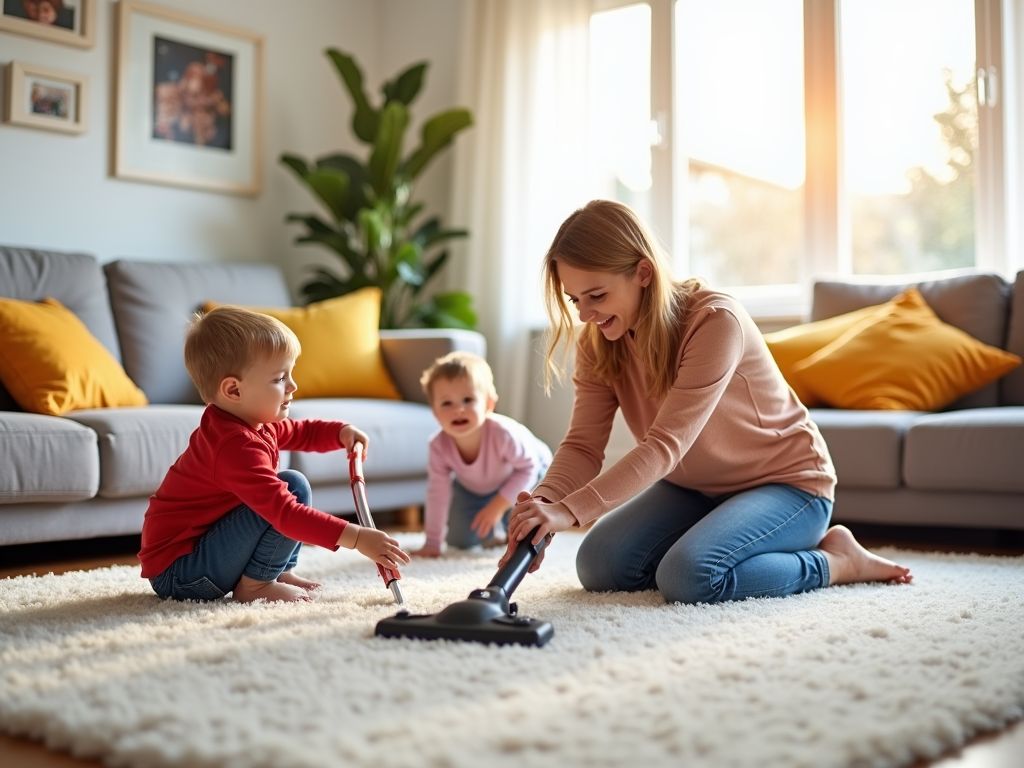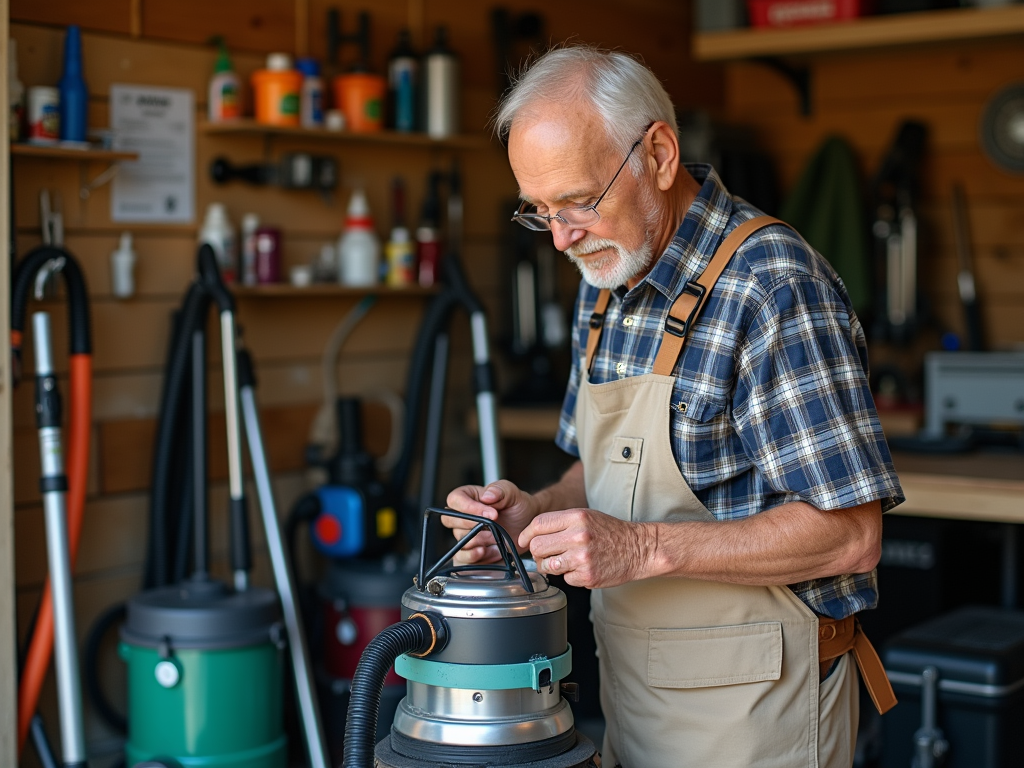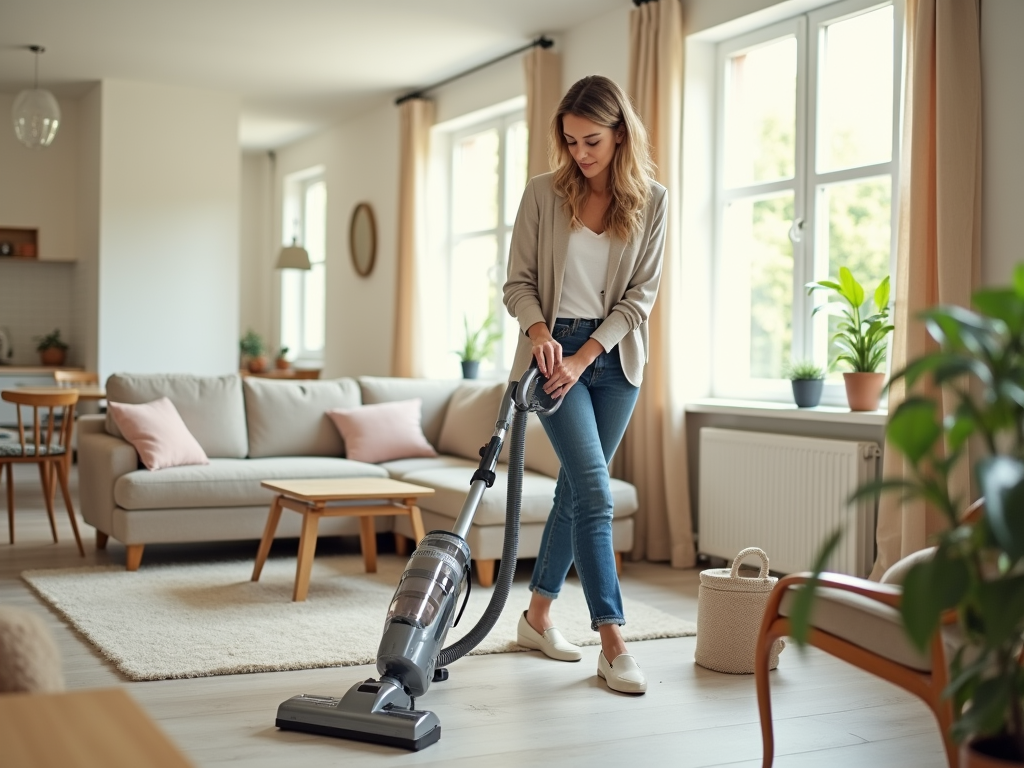Vacuuming is an essential part of household maintenance, but how often should you really do it? The frequency of vacuuming largely depends on various factors such as your lifestyle, the number of occupants in your home, and whether you have pets. For most households, a standard recommendation is to vacuum at least once a week. However, for those with pets or allergies, you may need to vacuum more frequently. This article will explore the factors that influence how often you should vacuum and provide tips for effective cleaning.
The Importance of Regular Vacuuming

Regular vacuuming is crucial for maintaining a clean and healthy living environment. It helps remove dirt, dust, allergens, and other debris that can accumulate in your home. This process not only improves the aesthetic appeal of your living space but also contributes significantly to your health. Here are some compelling reasons to vacuum regularly:
- Reduces Allergens: Vacuuming regularly helps reduce allergens like dust mites, pet dander, and pollen, which can trigger respiratory issues.
- Extends Carpet Life: Regular cleaning prevents the buildup of dirt and grime, which can wear down carpet fibers over time.
- Prevents Pest Infestations: Keeping your floors clean can deter insects and rodents from making your home their nesting ground.
- Enhances Indoor Air Quality: Removing dust and debris improves overall air quality, making your home a healthier place to live.
- Improves Aesthetic Appeal: A freshly vacuumed floor looks and feels cleaner, contributing to a pleasant home environment.
Factors Influencing Vacuuming Frequency

The optimal frequency for vacuuming can vary based on several factors. Understanding these can help you determine a vacuuming schedule that suits your household. Consider the following:
- Number of Occupants: More residents typically mean more dirt and debris, suggesting a more frequent vacuuming schedule.
- Presence of Pets: Households with pets should vacuum multiple times a week to manage fur and dander.
- Allergy Sufferers: If anyone in your household has allergies, consider vacuuming every few days to minimize allergens.
- Type of Flooring: Carpets need more frequent vacuuming than hard floors; use a vacuum with proper attachments for each type.
- Foot Traffic Areas: High-traffic areas like entryways may require daily attention, while less frequented areas can be cleaned less often.
Best Practices for Vacuuming
To ensure effective vacuuming, following best practices can make a significant difference. Here are several strategies to keep in mind:
- Empty the Vacuum: Ensure your vacuum bag or canister is emptied regularly for optimal performance.
- Use the Right Attachment: Use attachments designed for upholstery and corners to effectively clean those hard-to-reach areas.
- Adjust the Height: Make sure your vacuum is set to the correct height for your flooring type for better suction.
- Slow and Steady: Move the vacuum slowly to allow it to pick up all debris effectively.
- Schedule Vacuuming: Set a regular schedule to ensure vacuuming becomes a part of your cleaning routine.
While the guidelines provided above offer a framework, every household is unique. Evaluate your personal circumstances, such as family activities and outdoor access, which may contribute to additional dirt being brought inside. For instance, during certain seasons, like winter, when dirt and salt from snow can accumulate, increasing vacuum frequency becomes crucial. It’s also beneficial to utilize a vacuum equipped with HEPA filters if allergies or pet dander are concerns, enhancing indoor air quality further. Ultimately, trusting your instincts and observations will dictate the approach that works best for your home.
Conclusion
In conclusion, how often should you vacuum? The answer largely depends on your household dynamics, health considerations, and personal preferences. Establishing a regular routine not only minimizes allergens and dirt but also enhances your overall living environment. For most homes, aiming to vacuum at least once a week is prudent, with adjustment based on the factors discussed. Remember, the goal is to maintain a clean home for the well-being of its occupants.
Frequently Asked Questions
1. How often should I vacuum if I have pets?
If you have pets, it’s advisable to vacuum at least two to three times a week to manage hair and dander.
2. Is it necessary to vacuum hardwood floors?
Yes, vacuuming hardwood floors helps remove dust and debris, but ensure you use a vacuum designed for hard surfaces to avoid scratches.
3. Can vacuuming too often damage my carpet?
No, regular vacuuming generally prolongs the life of your carpet. However, it’s important to use the right settings to avoid damaging the fibers.
4. What is the best time to vacuum?
The best time to vacuum is usually in the morning or evening when dust has settled but before activities like cooking or evening relaxation begin.
5. Should I vacuum before or after dusting?
You should dust before vacuuming to allow any fallen dust to be picked up by the vacuum, ensuring a cleaner result.
